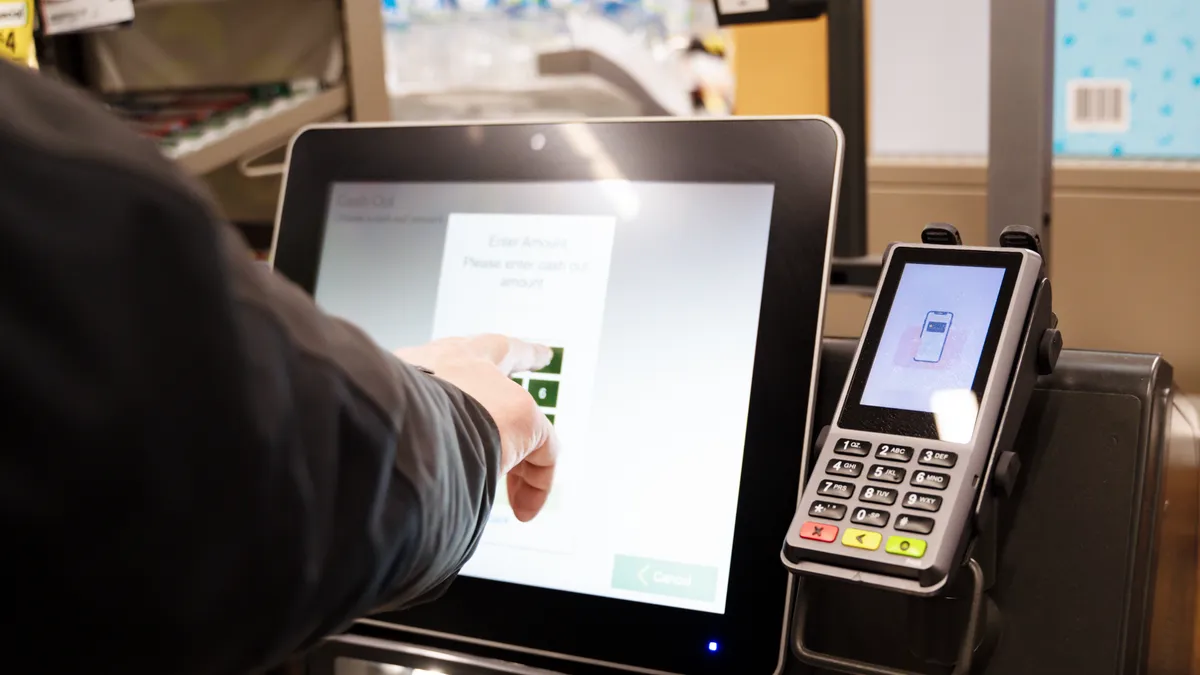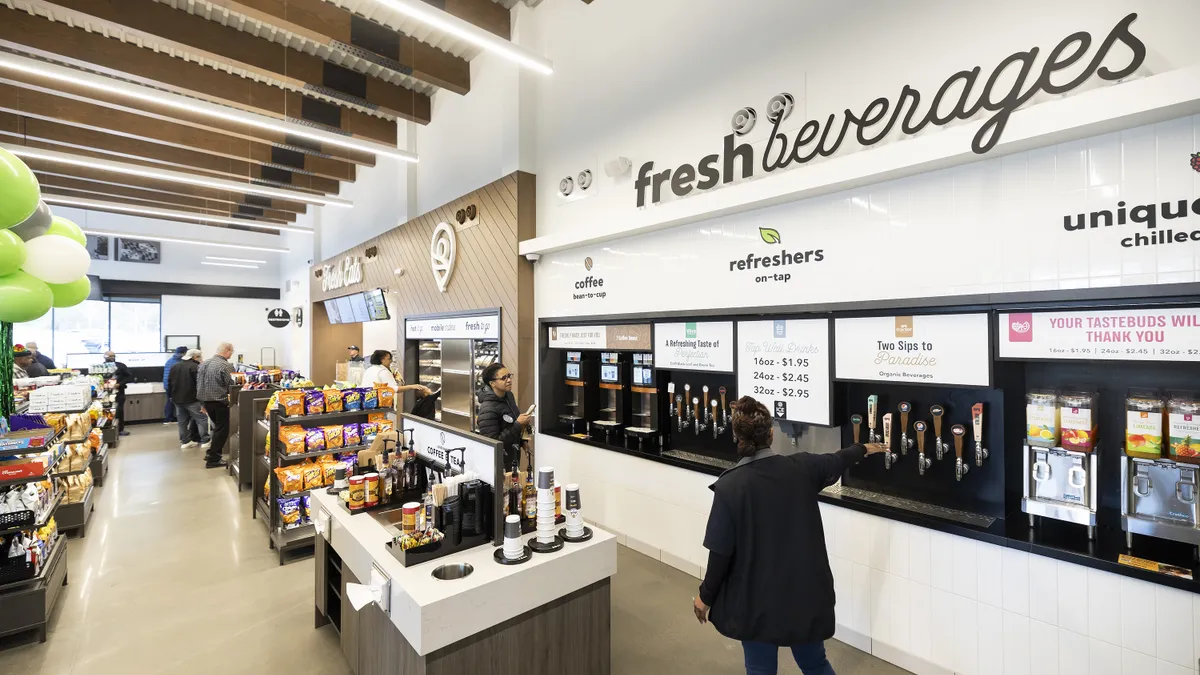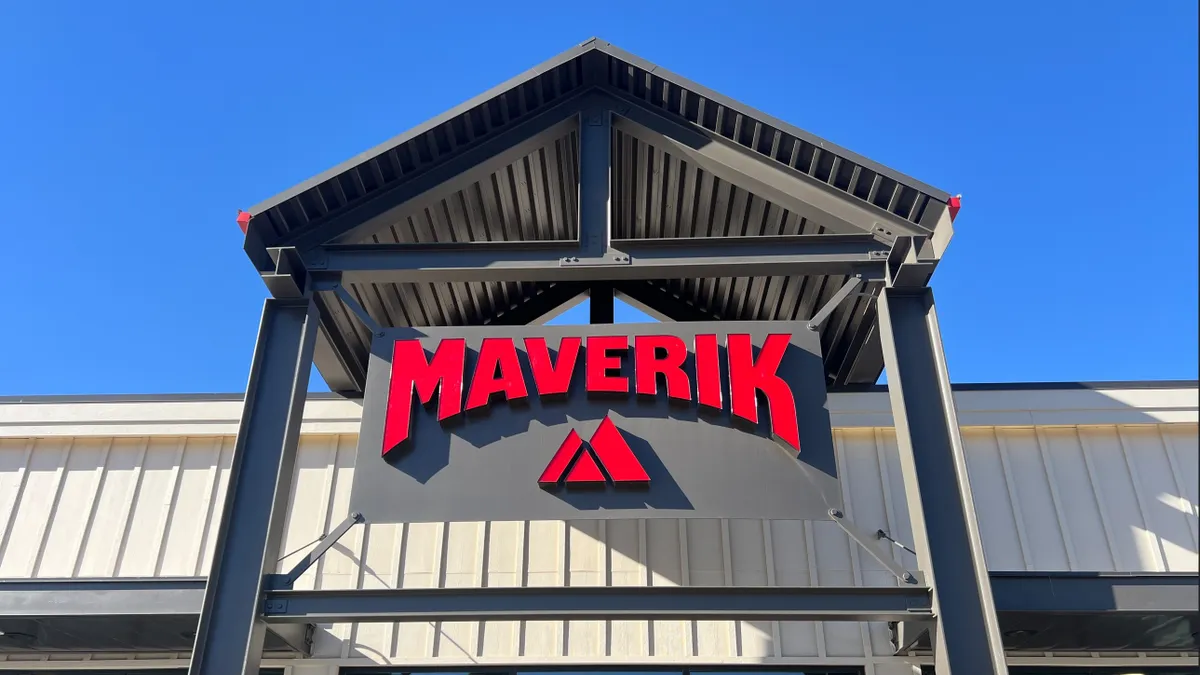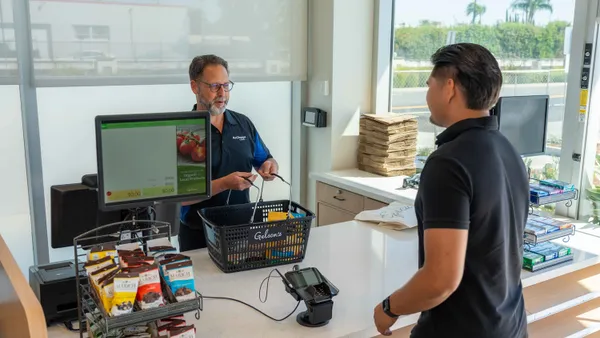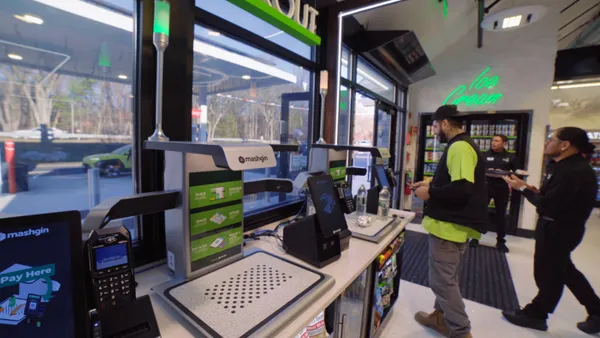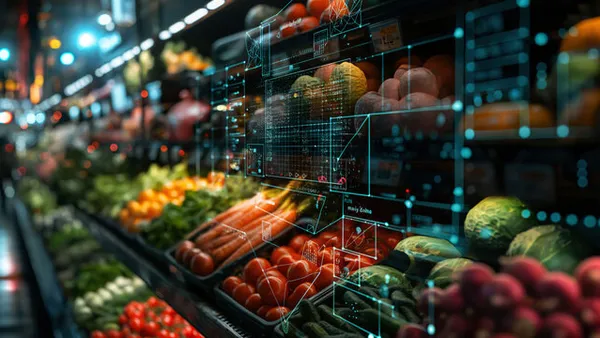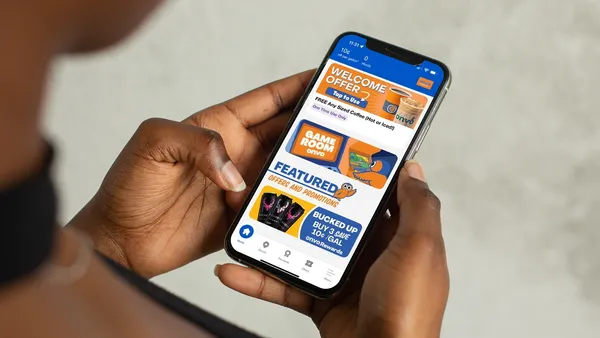Dive Brief:
- The self-checkout market experienced a “new record year” in 2023, according to a recent report from RBR Data Services. Over 217,000 terminals were delivered globally, up 12% year over year.
- The U.S. is the largest self-checkout market, a trend driven in part by supermarket chains and c-stores. Locations with existing self-checkout operations are installing additional terminals or refreshing older hardware, per the report.
- Global installations of self-checkout terminals are predicted to reach 2 million by 2029, per the report.
Dive Insight:
Retailers are reshaping their self-checkout options amid shifting consumer habits.
An increasing number of self-checkout units, for example, only accept digital payment options such as mobile wallets, cards and biometric payments. Additionally, in response to concerns about shrinkage, some retailers have altered their operations, such as limiting basket sizes.
“Self-checkout pilots are popping up in smaller countries and the technology is taking off in major markets that initially had been slow to adopt, such as Germany, showing strong potential for the global market to grow,” Jeni Bloomfield of RBR Data Services said in a statement.
In the convenience industry, self-checkout has been increasingly popular, especially given the labor crunch c-stores often face. Retailers like Love’s Travel Stops and Pilot Company are including them in refurbishments, while Kwik Trip is putting the machines in all new builds.
Though the U.S. has led self-checkout adoption, a number of major retailers have started to back away from the technology. Companies like Walmart, Dollar General and Five Below have scaled back or removed their self-checkout terminals. Target has moved to limit self-checkout transactions to 10 items or fewer at most stores and added more cashier-staffed lanes across its locations.
Additionally, some retailers have integrated RFID technology into their operations to improve their supply chain and self-checkout functions. However, such efforts have yielded mixed results.
Fashion retailer Uniqlo has touted RFID technology as part of its efforts to improve its supply chain management and in-store shopping experience. Meanwhile, Walmart this spring ended a RFID tech pilot that verified customers' purchases as part of its scan-and-go checkout service at a Bentonville, Arkansas, location.


